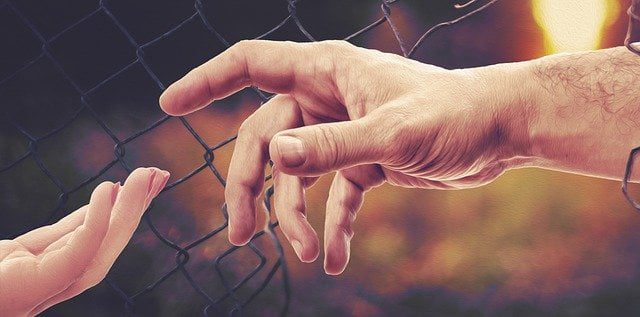This is definitely a click-bait title if ever there was one, but maybe this short article can change your mind. The changing of your mind although it seems complex is actually very simple, but first you have to accept the premise that your emotional mind is driven by a 5-year-old child. If you can maintain this viewpoint then you will be able to understand why people do what they do, without needing to judge them.
From the moment we are conceived, our system is learning. This is a journey that hopefully will continue until our last breath, but as a life-long learner I am extremely bias. As we are growing, we are learning, we are in fact Knowledge Integration Devices, in short, we are all KIDs. Our childhood experiences, although they may seem far away, are forever present, until dealt with. Take a look at the image below and ask yourself is it possible that you have experienced one or more of these adverse childhood experiences? Maybe that’s the reason your colleague or partner is constantly tired, irrational or emotional, perhaps, it’s the reason you have never been able to hold down any kind of long-term relationship, professional or personal.
The emotional impact of a traumatic event may seem very slight to the onlooker, but to the person who is experiencing it, the threat can be very real, with life altering consequences. The problem is where can you go if you need help? The rational part of your brain closes down when the event is re-triggered, so you won’t be able to think your way out. Therapy costs money, can take a long time and will your current partner or employer put up with you during the process? These are the sorts of questions that run round your mind as you try to figure a plan of action.

The good experiences allow us to remain flexible and resilient as the challenges of the big wide world come along. Our learning brain is able to bring dopamine to the challenge, which keeps us smiling as new learning comes along. Yes, even old dogs will learn new tricks, if you give them a treat.
The bad experiences, however, leave us trapped in a time warp, where we are immediately transported back to the original event, without the mental resources to help ourselves. Our brain switches from ‘learning’ to ‘learned’ and cortisol flushes through the system. Even though the situation may seem new to you consciously, on a below conscious level your primitive brain has information about this context that links to your survival!
A good therapist should be able to guide you back in time with a good feeling and have you explore the original problem. If you think about this neurochemically, you will be taking a huge amount of dopamine and flushing away the cortisol that the negative experience has created. That’s what you might call sorting mental health.
-

Mental health needs to be sorted -

Einstein on the road
It’s all in the words
A company planning a ‘mental wellness’ approach using the tried and tested methods must be insane!
Matt Hudson
Why? Because the mental health professionals, psychiatrists, psychologists, counsellors, etc, have been trying to sort this problem for many, many years. Therefore to use the same approach, whilst expecting a different outcome is utter madness. The resources that a business ploughs into supporting mental wellness must be used wisely and avoid the well trodden path of traditional mental health approaches. Instead of an LSS (lip service strategy) employees need to ‘feel‘ connected to what’s happening. The feeling of connection fires up the primitive brain and the little 5-year-old feels safer, so ensuring any program targets the child, benefits the adult.
Do you want your friends and colleagues knowing you have a mental health problem and the organisation is supporting you, or would you prefer to sort your own mental health? The mind is not like an arm or leg, you can’t put it in a cast for 2 months and expect it to be well. You can, however, learn to realise that the mind is driven by learning, so your current situation may be the result of something you have failed to adapt to or learn from. This leads us to ‘sort’ or ‘support’, which feels best?
Sort:
- a group of things that are of the same type or that share similar qualities
- to put things in order
- to deal with something or someone
Support:
- to agree with and give encouragement to someone or something because you want him, her, or it to succeed
- to hold something firmly or carry its weight, especially from below to stop it from falling
- to prove – these figures support what I am saying
- acceptance and permission
- agree with or encourage a person, idea or principle
- to give emotional or practical help
- to give financial assistance
Trauma or a barrier to learning?
If we consider that your computer screen keeps slowing down during a Facetime or Zoom meeting, we do a quick check and discover that our broadband signal needs upgrading. Very rarely is it the computer, why don’t we approach mental health the same way?
A person is underperforming at work, maybe they aren’t sleeping well, stressed or depressed, these are interferences in the broadband, which cost energy to run. Meanwhile, the person is still going to work and getting on with life the best they can. Are you with me so far?
Then, the person takes his/her body off to the pharmacist/doctors after trying various attempts at a reboot and overhaul via many Google health searches. The computer, we have established is working fine, it’s just the internet feed, isn’t this just the same for the person?
If we can interrupt the stimulus that is constantly being streamed to the person then no response is required by them. Their energy will return, and optimum wellness can be reclaimed. The original experience is still presenting the barrier to the person’s learning and this, once removed, leaves a person ready, fit and able to continue their unique and wonderful life.

Sort poor mental health, don’t support it!
Trial MindReset here your first 2 sessions are free!



